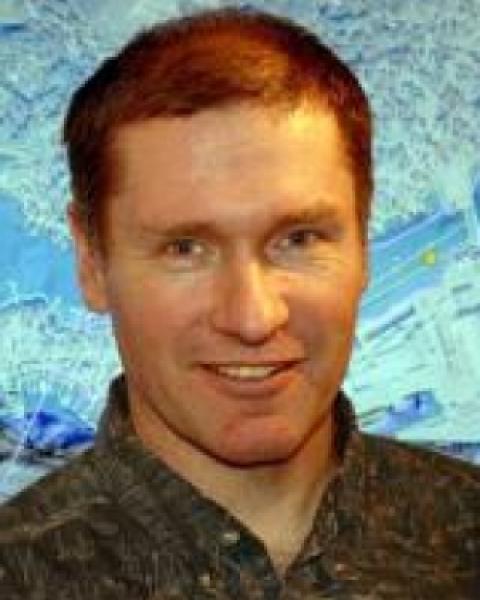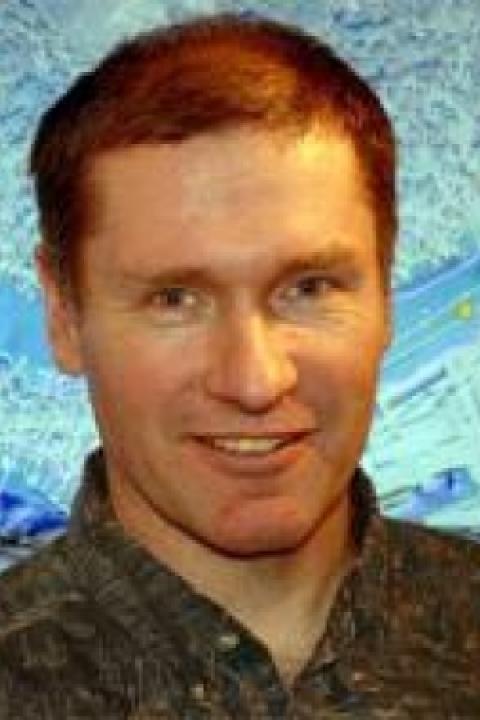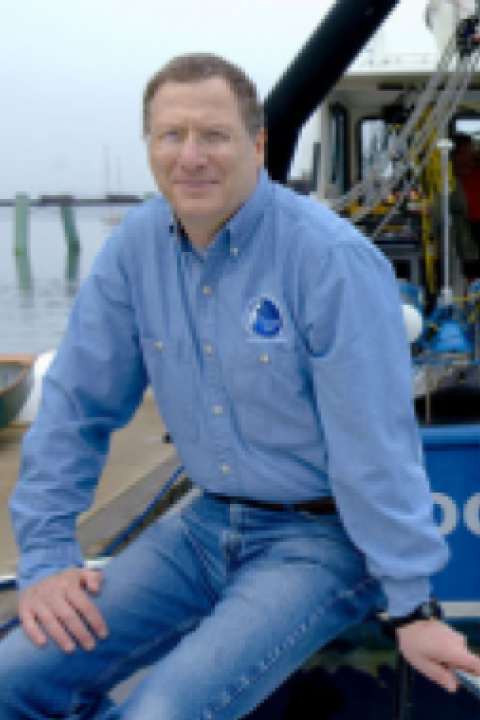The Master’s in Ocean Engineering: Ocean Mapping Option at UNH offers an immersive experience at a leading research university. You’ll address critical challenges like sea level rise and coastal impacts while focusing on sustainable ocean solutions. Engage in hands-on research in ocean mapping, ROVs, and ocean renewable energy using cutting-edge facilities like the Chase Ocean Engineering Lab and the R/V Gulf Surveyor. Collaborate with esteemed partners including NOAA, the Marine School, and the Atlantic Marine Energy Center.
Why pursue an ocean engineering M.S. with an option in ocean mapping?
More than 85% of the ocean floor is still unexplored. Ocean mappers are modern-day explorers, mastering not only the elements of mapping the seabed, but also becoming adept at such topics as the geologic characterization of the seabed and the mapping of living ocean resources and habitats. Engineering students focus on developing the tools, sensors and techniques used to map the oceans.
Why study ocean mapping at UNH?
At UNH, you’ll gain critical skills in rigorous classes and research projects at sites in New England and around the world. Our program is led by the Center for Coastal and Ocean Mapping/Joint Hydrographic Center, one of four data centers for the Seabed 2030 project, which aims to create the definitive map of the world ocean floor by 2030, and one of only two academic centers in North America where students can complete the IHO/FIG/ICA-recognized, category-A Standards of Competence for Hydrographic Surveyors program. You’ll have access to extensive research facilities at the Jere A. Chase Ocean Engineering Laboratory and aboard the R/V Gulf Surveyor, a 48-foot ship that is purpose-designed for ocean mapping activities. Most students who are accepted into the program are supported as Research Associates through externally-funded grants.
Potential careers
- Academic research
- Data analysis
- Environmental/hydrographic consulting
- Governmental agencies (NOAA, NAVO, USACE, NGA)
- Hydrographic surveying
- K-12 and university education
- Marine hardware and software development
- Marine research
- Marine resource management
- Mineral resources exploration
- Ocean technology
- Remote sensing
- State regulatory agencies
Curriculum & Requirements
The MS option in ocean mapping is offered in conjunction with the Joint Hydrographic Center/Center for Coastal and Ocean Mapping. Students follow a more structured path through this program, which incorporates all aspects of hydrography as required by the Interntational Hydrogrpahic Organization (IHO).
Students may also fulfill the Category A (professional) International Federation of Surveyors/International Hydrographic Organization/International Cartographic Association (FIG/IHO) Standards of Competence for Hydrographic Surveyors by completing specialized requirements in addition to the MS-option program requirements. More information is available on the Center for Coastal and Ocean Mapping website.
| First Year | ||
|---|---|---|
| Fall | Credits | |
| OE 870 | Geodesy for Ocean Mapping | 3 |
| OE 874 | Integrated Seabed Mapping Systems | 4 |
| OE 990 | Ocean Seminars I | 1 |
| ESCI 820 | Ocean Measurements Lab | 4 |
| Credits | 12 | |
| Spring | ||
| OE 871 | Positioning for Ocean Mapping | 4 |
| OE 875 | Advanced Topics in Ocean Mapping | 4 |
| OE 991 | Ocean Seminars II | 1 |
| Credits | 9 | |
| Summer | ||
| OE 972 | Hydrographic Field Course | 4 |
| Credits | 4 | |
| Second Year | ||
| Fall | ||
| OE 865 | Underwater Acoustics | 3 |
| Credits | 3 | |
| Total Credits | 28 | |
Degree Requirements
| Code | Title | Credits |
|---|---|---|
| Core Courses | ||
| OE 990 & OE 991 | Ocean Seminars I and Ocean Seminars II | 2 |
| ESCI 820 | Ocean Measurements Lab | 4 |
| OE 865 | Underwater Acoustics | 3 |
| OE 870 | Geodesy for Ocean Mapping | 3 |
| OE 871 | Positioning for Ocean Mapping | 4 |
| OE 874 | Integrated Seabed Mapping Systems | 4 |
| OE 875 | Advanced Topics in Ocean Mapping | 4 |
| OE 972 | Hydrographic Field Course | 4 |
| Electives | ||
| Select at least 3 additional credits from the following courses: | 3-4 | |
OE 854 | Ocean Waves and Tides | |
OE 857 | Coastal Engineering and Processes | |
OE 895 | ||
ECE 814 | Introduction to Digital Signal Processing | |
ESCI 858 | Introduction to Physical Oceanography | |
ESCI 864 | Spectral Analysis of Geophysical Time Series Data | |
ESCI 868 | Applied Physical Oceanography for Hydrographic Surveyors | |
ESCI 869 | Marine Geology and Geophysics for Hydrographic Surveyors | |
ESCI 896 | Topics | |
| Thesis Requirement | ||
| OE 899 | Master's Thesis | 6 |
| Total Credits | 37-38 | |
Program Learning Outcomes
Students graduating with a MS or MEng in Ocean Engineering should be able to:
- Use their ocean engineering graduate education for success in technical careers in industry, academia, government, or for advanced ocean-related research in engineering and the physical sciences.
- Rigorously apply fundamentals of science and engineering to professional practice that enhances our understanding of and/or contributes to the sustainable development of the oceans.
- Contribute their ocean engineering problem solving skills to society through participation and leadership in groups dedicated to serving both professional associations and the public interest.
Deadline
Applications must be completed by the following deadlines in order to be reviewed for admission:
- Fall: Jan. 15 (for funding); April 1 (recommended US; final international); July 1 (final)
- Spring: Dec. 1
- Summer: N/A
- Special: N/A
Application fee: $65
Campus: Durham
New England Regional: No
Accelerated Masters: Yes (for more details see the accelerated masters information page)
New Hampshire Residents
Students claiming in-state residency must also submit a Proof of Residence Form. This form is not required to complete your application, but you will need to submit it after you are offered admission, or you will not be able to register for classes.
Transcripts
If you attended UNH or Granite State College (GSC) after September 1, 1991, and have indicated so on your online application, we will retrieve your transcript internally; this includes UNH-Durham, UNH-Manchester, UNH Non-Degree work and GSC.
If you did not attend UNH, or attended prior to September 1, 1991, then you must upload a copy (PDF) of your transcript in the application form. International transcripts must be translated into English.
If admitted, you must then request an official transcript be sent directly to our office from the Registrar's Office of each college/university attended. We accept transcripts both electronically and in hard copy:
- Electronic Transcripts: Please have your institution send the transcript directly to grad.school@unh.edu. Please note that we can only accept copies sent directly from the institution.
- Paper Transcripts: Please send hard copies of transcripts to: UNH Graduate School, Thompson Hall- 105 Main Street, Durham, NH 03824. You may request transcripts be sent to us directly from the institution or you may send them yourself as long as they remain sealed in the original university envelope.
Transcripts from all previous post-secondary institutions must be submitted and applicants must disclose any previous academic or disciplinary sanctions that resulted in their temporary or permanent separation from a previous post-secondary institution. If it is found that previous academic or disciplinary separations were not disclosed, applicants may face denial and admitted students may face dismissal from their academic program.
Letters of recommendation: 3 required
Recommendation letters submitted by relatives or friends, as well as letters older than one year, will not be accepted.
Personal Statement/Essay Questions
Prepare a brief but careful statement regarding:
- Reasons you wish to do graduate work in this field, including your immediate and long-range objectives.
- Your specific research or professional interest and experiences in this field.
Important Notes
All applicants are encouraged to contact programs directly to discuss program-specific application questions.
International Applicants
Prospective international students are required to submit TOEFL, IELTS, or equivalent examination scores. English Language Exams may be waived if English is your first language. If you wish to request a waiver, then please visit our Test Scores webpage for more information.
Explore Program Details
UNH's School of Marine Science and Ocean Engineering serves as an interdisciplinary nexus for marine science and ocean engineering teaching and research across the University.
The Center for Coastal Mapping promotes and fosters the education of a new generation of hydrographers and ocean-mapping scientists to meet the growing needs of both government and the private sector.










